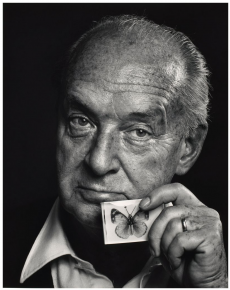
Email: reecejordan98@hotmail.co.uk
Total Article : 168
About Me:18-year-old sixth form student, studying English Literature, History and Government and Politics. My articles will broadly cover topics from the current affairs of politics to reviews of books and albums, as well as adding my own creative pieces, whether it be short fiction or general opinion.

Here, Nabokov asserts something similar to a formalist, or structuralism approach, to literature. In these approaches, the reader reads the book with no preconceived notions of what it is about (‘if one begins with a readymade generalization, one begins at the wrong end and travels away from the book before one has started to understand it’), and therefore sees it as ‘the creation of a new world’. This is a trope of Nabokov’s outlook on literature – that we should always remember it to be a work of fiction and never attribute to it life’s components (Nabokov was fervently against Freudian approaches to literature – believing that to psychoanalyse characters not only removes the nuance and complexity of human personality, but is also an attribution of reality on fiction.). This approach thus discounts the context of a novel – namely biographical details of the author, and the political climate at the time, and instead focuses on the patterns and symbols embedded within the novel, poem or play. Only after we have examined these patterns, Nabokov argues, should we then relate them to our own world of reality – only then may we find a didactic meaning. This is something that I think is slowly becoming lost in our modern approaches towards literature. Living in a world where everything must be looked at through a political prism before properly acknowledging the artistic value at hand only serves to devalue not only literature, but art. Take, for example, the latest cinema hit, La La Land, which polarised both audiences and critics. On one hand we had those appreciating the form and rugged themes that run throughout film and had only praise and applause to give to director, Damien Chazelle. But on the other was an incessant berating of the film’s quality, and this stemmed from an exclusively political viewpoint. The artistic value of the film was neglected, or deemed less than it was, because the two lead actors were white, or that the relationship did not fit into a modern ideal whereby women are not influenced by enigmatic and vivacious men.
Lastly, Nabokov asks his students to fill out a list of questions on what a reader needs to be a ‘good reader’.
1. The reader should belong to a book club.
2. The reader should identify himself or herself with the hero or heroine.
3. The reader should concentrate on the social-economic angle.
4. The reader should prefer a story with action and dialogue to one with none.
5. The reader should have seen the book in a movie.
6. The reader should be a budding author.
7. The reader should have imagination.
8. The reader should have memory.
9. The reader should have a dictionary.
10. The reader should have some artistic sense.
He notes that there was an uneasy inclination towards looking at the socio-economic angle and that there should be a story with action and dialogue. What Nabokov believes are the four key things a ‘good reader’ must have are the last four, and this epitomises both his approach to literature and his notions on what we should do when reading a book.
Image Credits: wikipedia.co.uk

0 Comment:
Be the first one to comment on this article.